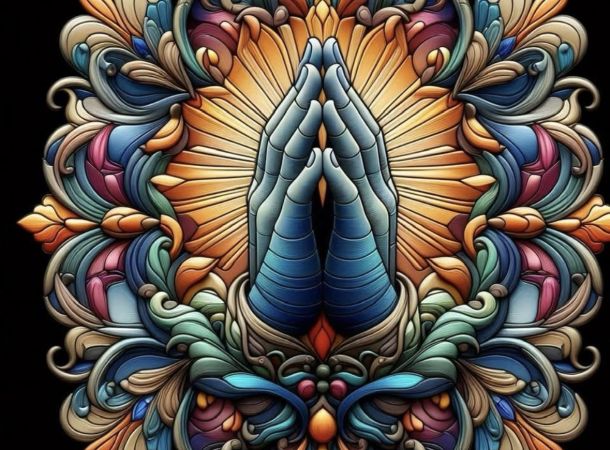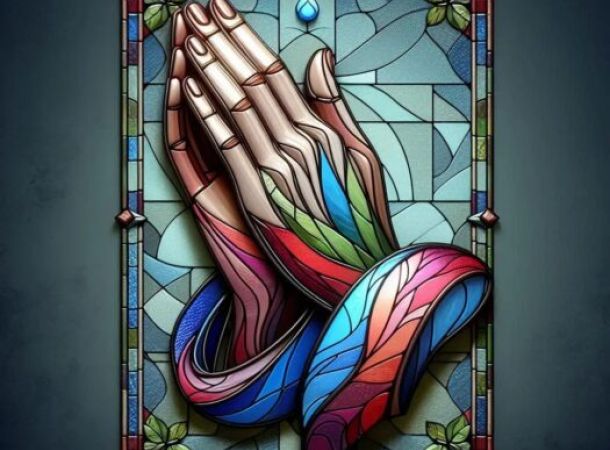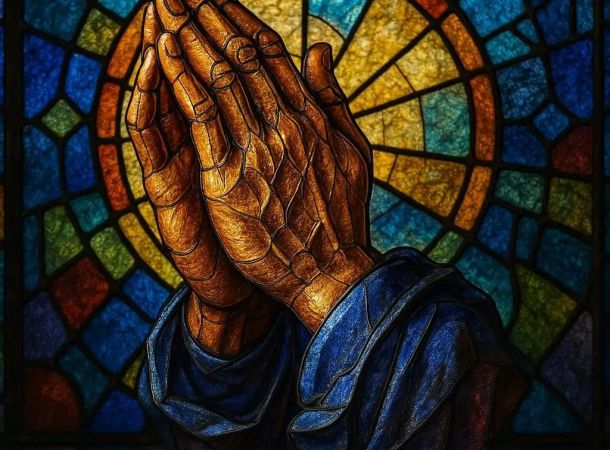Mourning
There are multiple enemies in the next Torah portion under review, labeled Chukat, meaning “statute”. From Numbers 19:1-22:1, we read about purification laws for the priesthood, making impurity a type of enemy. Moses’s failure to sanctify the Name of the Holy One proved to be adversarial and kept Moses from entering the Promised Land. We also read about Edom’s refusal to let the Israelites pass through the land, as well as the enemies Israel defeated, the Kings of Og and Sihon. One enemy I think we all have to wrestle with in this portion of scripture is grief. When we mourn a loss, it can draw us closer to the Holy One or farther away. Both Miriam and Aaron died in Chukat, and the Israelites handled both deaths differently.
According to grief expert David Kressler, there are seven stages one goes through when mourning a loss, including shock, denial, anger, bargaining, depression, testing, and acceptance. These stages are not necessarily linear and can overlap or be revisited. If we go back to the actual first mention of mourning in the Bible, it is with the death of Aaron’s two sons, Nadab and Abihu (Lev 10). They were consumed with a fire from the Divine Presence when they tried to draw near the Tabernacle in a way that God had not initiated. Aaron reacted to that significant loss with silence. What was he feeling? Anger? Deep sadness to the point of numbness? Shock? Perhaps all of the items listed above, except he did not test or bargain with the Holy One. It was such an acceptance that could have only come from a deep trust in the goodness of God’s heart.
If you ask people why they don’t believe in God, most of the time, it is because they attribute all the suffering and loss in the world to Him or His lack of protection from pain. When God created humanity, He made them as eternal beings of light, or vessels of His Divine Presence. It was humanity that brought death into the world (Rm 5.12). The Holy One, however, redeems death by creating a new beginning out of it. He doesn’t undo what man has initiated, He just rewrites it. We were not created with the tools needed to process death, because the Holy One originally designed us for life. Therefore, we do not have innate natural ways to navigate loss. We have to lean into the Holy One to teach us how to find the light in something we were not created to experience. Unfortunately, that is the last thing most of us do.
When Miriam dies, the congregation almost ignores the whole thing and immediately begins complaining, creating a new problem to distract themselves from the pain of their loss. They stated something like, “We are out of water, and we want you, Moses and Aaron, to fix it.” They become angry with God and again attribute evil intent to His miraculous and kind actions (Nm 20.2-5). They cry and complain and attack everyone and everything instead of sitting with their grief. Not long after Miriam dies, Aaron dies. This time, it seemed the Israelites had learned a little and took thirty days to mourn. The entire house of Israel wept for thirty days following Aaron’s death. This example teaches us the importance of feeling our feels, and expressing them, collectively and individually. It validates the value of community and mutual support in the grieving process. There are no wrong or bad emotions, only harmful ways to express them. Giving themselves a month to grieve by weeping, wearing sackcloth as a symbol of deep sadness, and remembering the life of their loved one, allowed for those feelings to go from the inside to the outside.
There are ANE (Ancient Near East) customs that God did not want the Israelites to participate in. Those included marking or mutilating your body for the dead, which some tribal cultures, like Papua New Guinea, still engage in today (link). They were not to cut their hair for the dead, or act as though they were hopeless in death, because they were not. Death could not overcome the light of life in the very beginning of God’s story. The Israelites were not supposed to walk around in a state of utter despair since they worshipped the God of life.
1 Thessalonians 4:13: Now we do not want you to be uninformed, brothers and sisters, about those who are asleep (dead), so that you may not grieve like the rest who have no hope.
In a Continental Commentary on Leviticus 20:5, Jacob Milgrom writes;
“The purpose of the cut hair for the dead is most likely the same as that of the well-attested donation of hair to the sanctuary. Since hair continues to grow throughout life (and appears to do so for a time after death), the ancients considered it to be the seat of a person’s vitality and life force, and in ritual it often served as the substitute for a person… What I am suggesting is that shaving the head or cutting the beard for mourning the dead is simply an aspect of the cult of the dead. Let us keep in mind that these rites are not the impulsive, anguished acts of grief (contrast Ezra 9:3). Shaving and pulling hair are performed carefully and deliberately. And, I submit, there is a good chance that this hair—the symbol and essence of life—was offered as a sacrifice to the god(s) of the dead.” (link)
God assures us that even though He did not create us to process death, He can guide us through the pain of loss. His comforting presence and guiding hand can transform our grief into a deeper connection with Him, offering hope and reassurance in loss. This understanding can help us trust in God’s role as our ultimate source of comfort and guidance, especially in times of loss. Here is a prayer that I have clung to whenever I lose a loved one, a prayer that reminds us of God’s unwavering love and support.
A Meditation Based on the 23rd Psalm
O Shepherd of Israel, Who neither slumbers nor sleeps, we are the people of Your pasture and the sheep of Your hand. Enfold us safely in Your love. And if in our grief and loneliness and moments of desolation, we should stray from following You, O leave us not, faithful Shepherd, but draw us near to You. As we face the great mystery of death, which called away this our dear friend from our earthly abode, we feel our frailty, our weakness. We do not understand the brevity of life: we cannot understand why such pain and anguish of heart and mind are visited upon those we love. Make us not despair, Eternal Father; we are called by Your Name, we are Yours, You have set thoughts of You in our hearts, though we, creatures of flesh and blood, can but dimly apprehend Your purposes. Teach us not to neglect the task of today because we cannot see its eternal effect. O teach us to number our days that we may apply our hearts to wisdom; to lengthen our brief life by intensity of living; to fill swift hours with worthy deeds. Besides the still waters, through the green pastures, and in the valley where dark shadows lie, be You our strength and shield, and may we find Your rod and Your staff a stay and comfort to us in the days that lie ahead. Amen (link)
The reason that birthday celebrations do not grace the pages of the Bible and why Yeshua’s death is the focal point of the scriptures, and not His birth, is because the Hebrews celebrated the life of an individual when they died. They would remember their legacy, they would do the greatest mitzvah (commandment) ever, which is to honor the dead by caring for the body of the deceased. It is the greatest act of kindness for a practicing Jew because a dead person cannot repay you for it. They carry on the legacy of the deceased by making their memory a blessing. The greatest reward in the world to come, most likely goes to Joseph of Arimathea, who did the most gracious act of beautifying and preparing Yeshua’s body for burial (Mt 27).
Ecclesiastes 7:8: The end of a thing is better than its beginning; The patient in spirit is better than the proud in spirit.
When we have to face this possible enemy in our lives and realize our human frailty, our fears of the unknown, and the pain of loss, I hope we can draw closer to the One who creates new beginnings out of every ending.




Leave a Reply